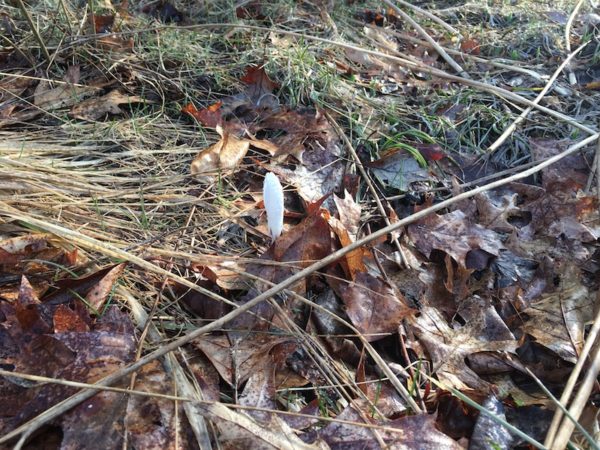Hey everybody! Spring is really here. Time for us to throw off our wooly blankets and get outside and do some … yardwork?? Every time I step outside my door I see work to be done. The beautiful weather beckons, but not the thought of spring clean up.
But, come the weekend, many of us will be out there — in our yards, raking and twisting, bending and scootching for hours on end. The thing is, if you hibernated all winter, you need to ease into physical activity, even gardening. Ramp up too quickly and your back will be the first to let you know you’ve made a bad decision.
That’s what Dr. Stephen Clark advises. He’s a spine specialist at Central Maine Orthopaedics. “I think it’s important for everyone to hold back a little bit early on,” he says, “and focus on flexibility, initially, and core strengthening exercises.”
Even if you were pretty active before winter settled in and you decided to hunker down, that lack of aerobic exercise, in particular, hasn’t done you any favors. Research shows that just two weeks of inactivity can cause changes in the parts of our cells that create energy. “It’s an indirect measure,” says Dr. Clark, “but a very important measure of how much your muscles can take and how ready they are to perform work.”
So … if things can change in just two weeks, imagine what happens after months of not getting much, if any, aerobic exercise. Like if you used freezing cold, icy, snowy winter days as an excuse to cuddle up on the couch instead of going to the gym, jumping on the treadmill, or playing outside.
Anyway, here we are ready to jump in with both feet and Dr. Clark is saying whoa, take it slow and easy. Strength coach Andy Wight gave us the same advice about running in last week’s Catching Health fitness post.
But Dr. Clark isn’t talking about running a marathon or even around the block a few times. He’s saying be careful about doing things like gardening, raking, working on the house. “Normal things that may not seem like they fall under the umbrella of exercise, but they are,” he says. “They might even be more vigorous that some of the gym or aerobic exercises people do. I think it’s important to put those in the same category and sort of train before you go out and start bending forward in the garden and planting things for hours in a row. Raking, with its aggressive twisting, is also not good for the back.”
Upright is best
He’s not saying forget about that yard work (Sorry!) just be careful and listen to what your body may be telling you once you’re out there raking or whatever. “Keep in mind that your spine is happiest when you’re upright looking forward,” he says. “If you’re crouched down, looking down, your spine is working extremely hard to accomplish that position. If you stay there for a prolonged period of time, it’s going to cause some things to flare up. It’s going to potentially cause a repetitive stress injury. I think it’s important to take breaks, to ease into that sort of thing for short periods of time and work up to it.”
Dr. Clark’s best advice for easing into spring activities is to take a hike — literally. “I think it’s one of the better things you can do for your body,” he says. “Maintaining an upright posture and slowly working up so that by the time you can hike four or five miles in a row, you’re probably ready to do most other outdoor activities. It’s a good start to the season.”
And his best advice, in general, is to try to keep the same level of activity all year long. He rarely sees people in his office who stay active no matter what the season. It’s the people who emerge from hibernation all gung-ho as if they were shot from a cannon who are most apt to come limping in clutching their sore backs. Don’t let that be you.
Now get outside, contemplate those outdoor chores, and go for a walk instead!




Leave A Comment